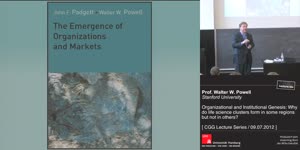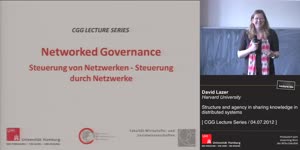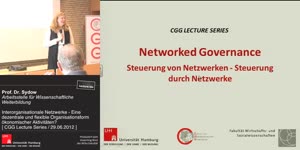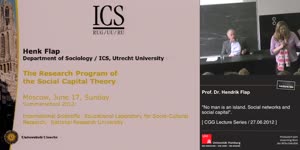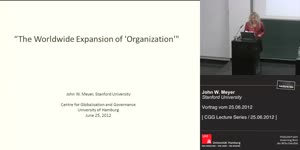Structure and agency in sharing knowledge in distributed systems - David Lazer - Universität Hamburg
- Lecture2Go
- Videokatalog
- F.2 - Wirtschafts- und Sozialwissenschaften
- Sozialwissenschaften
- CGG Lecture Series
Videokatalog
Structure and agency in sharing knowledge in distributed systems
In decentralized institutions, a critical question is whether and how knowledge gained in one corner of the system spreads to other parts of the system. Part of the logic of decentralized systems is that they foster innovation and experimentation, which may then diffuse systemically. This outcome, however, depends on the mechanisms to share knowledge, and whether individuals have the motivation to share (and ask) given the opportunity. This talk will examine three mixed method case studies from the United States: (1) DNA labs, of which there are almost 200, dispersed through the country; (2) State Health Officials, of which there is one in each state; and (3) Communications directors in Congressional offices (largely based in Washington, DC). The question posed in each case is the extent of knowledge sharing, with a focus of why, what, and how knowledge is shared.

